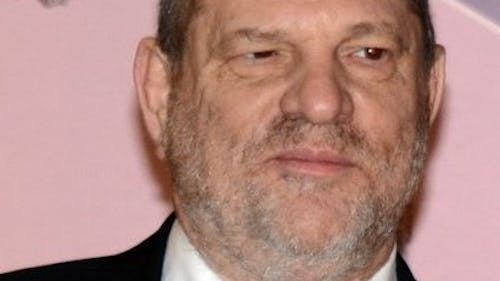Messy media cover-ups, controversy: Infamous cases of corruption

Media companies and those in power have used the internet, the news cycle and their print platforms to further their own personal and political agendas over preserving the integrity of information and the truth, time after time.
Here’s a list of famous cover-ups that have left a mark on American history and have shaped how people look at the media and other supposed authorities.
1972: Uncovering the Heinous Tuskegee Syphilis Experiments
While this may not be your typical media cover-up story, this is one of the most jarring examples of how spaces that are supposed to be safe for the American people – like doctor’s offices and clinical trials aimed at improving your health – can also be a source of horror and suffering.
On July 25, 1972, the American people found out how government-funded doctors were injecting hundreds of Black men with syphilis without their knowledge and using them as guinea pigs in order to study the effects of the disease.
Since the experiments continued for decades and a variety of actors played a key role in the exploitation of approximately 600 Black men, “seven men involved had died of syphilis and more than 150 of heart failures in participants were linked to the experiment,” according to TIME magazine.
This cover-up is an example of how authorities have used the bodies of Black people in the country without their consent too long and in order to further their own vicious agendas.
1969: The My Lai Massacre and Cover-Up
The New York Times reporter Seymour Hersh set the world on fire in the 70s when he exposed the true events of the My Lai Massacre. In March 1968, U.S. Army soldiers from Company C massacred more than 400 unarmed Vietnamese civilians, including women and children.
Initial reports on the incident mentioned nothing about the men, women and children that the soldiers had brutally murdered. Famous magazines praised the infantry for killing 129 Communists in a day-long battle and congratulated them on their “victory.”
Several months after the massacre, individuals involved in the incident implored the military and others in power to investigate the incident. Many of these requests were ignored and officials in the military and the government went out of their way to make sure further inquiries were not made into the incident.
Hersh led an independent investigation into the My Lai story and broke it on the Associated Press wire service in November 1969.
2004: Rathergate
We’ve heard of Watergate, yet did you know that the news industry has also had its fair share of “-gate” scandals?
The Killian documents controversy, also referred to as Rathergate, was presented by famous CBS anchor Dan Rather on his flagship show “60 Minutes II.” The documents were critical of former President George W. Bush’s service in the Texas Air National Guard.
These were aired less than two months before the 2004 presidential election. It was found later that CBS had failed to authenticate them and these documents were forged as a ploy to pursue a controversial military service story that criticized Bush’s service.
As many news outlets followed up, CBS stuck to its story and claimed the documents were real. Eventually, the fire couldn’t be contained – CBS was forced to admit its mistake and ended up firing most of the staff that worked on the show.
2019: NBC’s Harvey Weinstein Cover-Up
A recent example of media cover-ups relates to the #MeToo movement. Many reporters from NBC have come forward to talk about how NBC News worked to cover up sexual assault allegations against Weinstein.
A variety of people at the outlet worked to shut down NBC reporter’s coverage of the Weinstein story and adamantly lied about doing so.
“They personally intervened to shut down our investigation of Weinstein and behaved more like members of Weinstein’s PR team than the journalists they claim to be,” said Rich McHugh of Vanity Fair.
Time after time, NBC worked to not only stop the coverage of the Weinstein story, but also to cover up that it was trying to bury the story.
While former journalists are still speculating why it is that NBC continued to cut coverage on the story, a lot of it comes down to the behind-the-scenes interactions of NBC’s executives and Weinstein.
Much of the time, news outlets don’t want to hold people in power accountable because that would require them to clean their own house and face the consequences of the truth.



